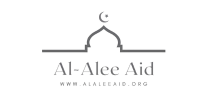Zakat is one of the Five Pillars of Islam, a fundamental duty for Muslims who have the means to give. Here’s all the information related to Zakat in Islam:
- **Meaning and Significance**: Zakat is an obligatory form of almsgiving or charity in Islam. It is considered a fundamental act of worship and a means of purifying one’s wealth. The word Zakat is derived from the Arabic root “z-k-a” which means “to grow” or “to increase”, signifying the growth and purification of wealth through giving.
- **Obligation**: Zakat is obligatory for Muslims who possess wealth above a certain threshold, known as the Nisab, and it is calculated based on specific criteria, primarily wealth and assets owned for one lunar year. It is considered a right of the poor over the wealth of the affluent.
- **Nisab**: The Nisab is the minimum amount of wealth a person must possess before Zakat becomes obligatory upon them. It is based on the value of gold and silver and is subject to change depending on prevailing market prices. Other forms of wealth, such as cash, stocks, business inventory, and livestock, are also considered in Zakat calculations.
- **Categories of Wealth**: Zakat is typically calculated at a rate of 2.5% of the wealth owned for one lunar year. This applies to various forms of wealth, including cash, gold, silver, business assets, agricultural produce, and livestock.
- **Recipients of Zakat**: Zakat is intended to benefit specific categories of people mentioned in the Quran, including the poor, needy, those in debt, travelers, and those working in the cause of Islam. It is also permissible to distribute Zakat for charitable projects, education, healthcare, and other forms of social welfare.
- **Timing**: Zakat is due once a year, and the timing starts from when a person’s wealth reaches the Nisab and continues for one lunar year. It is recommended to give Zakat during the month of Ramadan, although it can be given at any time of the year.
- **Intentions**: Like other acts of worship in Islam, intention (niyyah) is essential when giving Zakat. The giver should have a sincere intention of fulfilling their obligation and seeking the pleasure of Allah.
- **Benefits of Zakat**: Zakat serves various purposes in Islam, including alleviating poverty, promoting social justice, fostering solidarity among Muslims, and purifying one’s wealth and soul. It is considered a means of spiritual growth and a test of one’s willingness to sacrifice material possessions for the sake of Allah.
Overall, Zakat plays a crucial role in Islam, emphasizing the importance of compassion, generosity, and social responsibility. It serves as a reminder of the collective duty of Muslims to support those in need and uphold principles of justice and equality in society.

